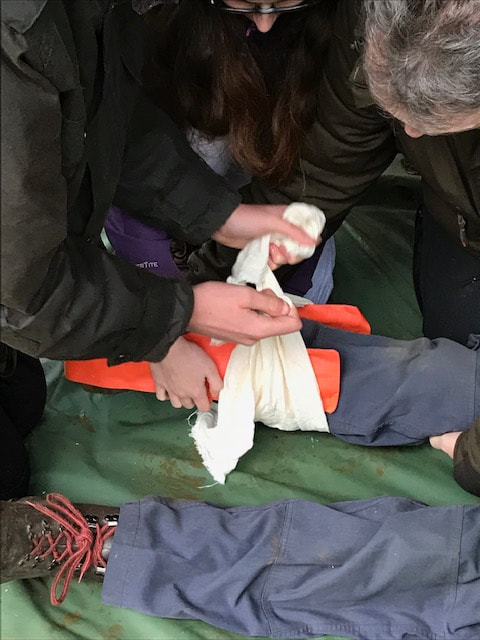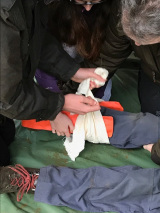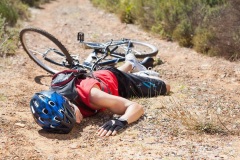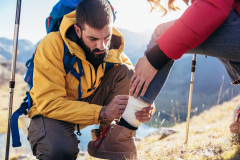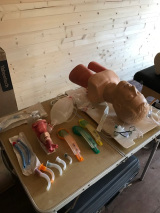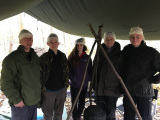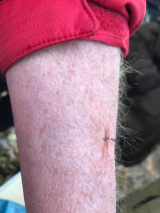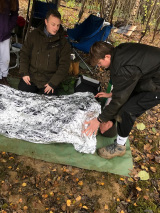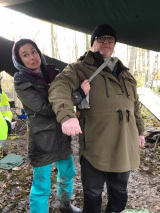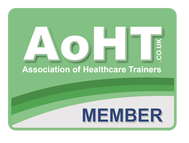- Expedition Medic
- >
- Expedition Medic Course (Trauma) Day 2 of Weekend
Expedition Medic Course (Trauma) Day 2 of Weekend
SKU:
£125.00
£125.00
Unavailable
per item
10th September, North Lincolnshire
Expedition Medicine (Trauma)
Our course conforms to The Royal College of Surgeon of Edinburgh (2015) Expedition Medic Competencies Framework for providers, who are not health care professionals.
Use of Prescription only medication (POM)
Upon successful completion of the course candidates will be able to purchase medical kits including selected Prescription only medication (POM) to deal with the variety of injuries and illnesses studied during the course. This is possible through our links with a travel Pharmacy.
Medication is supplied for emergency use during foreign travel when access to professional help is not available or may be significantly delayed. It can also be used to manage minor illness and Injuries that do not require evacuation. Where possible it should be used in consultation with a professional either in person or remotely via a communication link.
This course deals with Oral, Inhaled and Injectable medication, appropriate techniques taught for all methods.
Use of oral medication
Tramadol, Naproxen, Co-Codamol, Doxycycline,
Use of Inhaled - Analgesia
Penthrox
Use of Eye Medication
Chloramphenicol, Fluorescein, Tetracaine
Injection Techniques
Intramuscular and subdermal Injections for;
Allergy - Adrenaline
Analgesia - Lidocaine, Tramadol
Course Content
Upon successful completion of the course candidates will be able to perform a detailed primary and secondary survey including examination of key body systems and be able to record and understanding the importance of changes in vital signs.
Candidates will have an overview of and be able to recognise and diagnose a range of conditions, provide immediate emergency treatment and make rational decisions on need and mode of evacuation. Improvising equipment as needed from materials at hand.
Our instructor faculty includes healthcare professionals with a longstanding interest in wilderness medicine.
Partner Organistions
We are also looking for partner origination's to host our expedition medicine courses.
SCENE ASSESSMENT
Can take on the leadership role at an incident
Be able to practice dynamic risk assessment of scene safety and casualties
Be competent in triage sieve, sort & management skills for multiple casualties
INFECTION CONTROL
Use of Person protective equipment (PPE) and principals of Infection Control
DERMATOLOGY:
Wounds and Closure,
Stutring, Stapling, Steristrips
Blisters, Burns,
Wound and skin Infections
Catastrophic bleeding
Recognise life-threatening haemorrhage
Recognise & Effectively manage catastrophic limb and junctional bleed
Able to apply direct & indirect pressure
Competent application of tourniquet
Competent in use of haemostatic dressing / packing a wound with gauze
MUSCULOSKELETAL:
Pain and impact on function, fractures/dislocations
Soft tissue injuries relating to exercise and trauma
Clinical descision rules to differentiate soft tissue and bony injuries
Differentiate back pain & emergencies from benign disease / injury
Spinal injury
Appreciate mode of injury high risk for spinal injury
Appropriate neutral alignment & C-spine management
OPHTHALMOLOGY
Identify Emergencies, remove foreign bodies and treat minor trauma
Other Injuries & Techniquies
Certification:
Course CPD certificate and Major Incident Trauma Qualification
Expedition Medicine (Trauma)
Our course conforms to The Royal College of Surgeon of Edinburgh (2015) Expedition Medic Competencies Framework for providers, who are not health care professionals.
Use of Prescription only medication (POM)
Upon successful completion of the course candidates will be able to purchase medical kits including selected Prescription only medication (POM) to deal with the variety of injuries and illnesses studied during the course. This is possible through our links with a travel Pharmacy.
Medication is supplied for emergency use during foreign travel when access to professional help is not available or may be significantly delayed. It can also be used to manage minor illness and Injuries that do not require evacuation. Where possible it should be used in consultation with a professional either in person or remotely via a communication link.
This course deals with Oral, Inhaled and Injectable medication, appropriate techniques taught for all methods.
Use of oral medication
Tramadol, Naproxen, Co-Codamol, Doxycycline,
Use of Inhaled - Analgesia
Penthrox
Use of Eye Medication
Chloramphenicol, Fluorescein, Tetracaine
Injection Techniques
Intramuscular and subdermal Injections for;
Allergy - Adrenaline
Analgesia - Lidocaine, Tramadol
Course Content
Upon successful completion of the course candidates will be able to perform a detailed primary and secondary survey including examination of key body systems and be able to record and understanding the importance of changes in vital signs.
Candidates will have an overview of and be able to recognise and diagnose a range of conditions, provide immediate emergency treatment and make rational decisions on need and mode of evacuation. Improvising equipment as needed from materials at hand.
Our instructor faculty includes healthcare professionals with a longstanding interest in wilderness medicine.
Partner Organistions
We are also looking for partner origination's to host our expedition medicine courses.
SCENE ASSESSMENT
Can take on the leadership role at an incident
Be able to practice dynamic risk assessment of scene safety and casualties
Be competent in triage sieve, sort & management skills for multiple casualties
INFECTION CONTROL
Use of Person protective equipment (PPE) and principals of Infection Control
DERMATOLOGY:
Wounds and Closure,
Stutring, Stapling, Steristrips
Blisters, Burns,
Wound and skin Infections
Catastrophic bleeding
Recognise life-threatening haemorrhage
Recognise & Effectively manage catastrophic limb and junctional bleed
Able to apply direct & indirect pressure
Competent application of tourniquet
Competent in use of haemostatic dressing / packing a wound with gauze
MUSCULOSKELETAL:
Pain and impact on function, fractures/dislocations
Soft tissue injuries relating to exercise and trauma
Clinical descision rules to differentiate soft tissue and bony injuries
Differentiate back pain & emergencies from benign disease / injury
Spinal injury
Appreciate mode of injury high risk for spinal injury
Appropriate neutral alignment & C-spine management
OPHTHALMOLOGY
Identify Emergencies, remove foreign bodies and treat minor trauma
Other Injuries & Techniquies
- Knife Wounds
- Treatment of Amputations
- Blast Injuries
- Head injuries
- Chest injuries
- Abdominal Injuries
- Treating Shock
- Assessment of blood loss
- Elevation of injured limb
- Splintage as a haemorrhage control method
- Application of pelvic splintage
- Use of traction devices
- Application of appropriate wound dressings
- Local Anaesthesia
- Skin Suturing & Stapling
- Sub Dermal Fluid Administration
Certification:
Course CPD certificate and Major Incident Trauma Qualification
